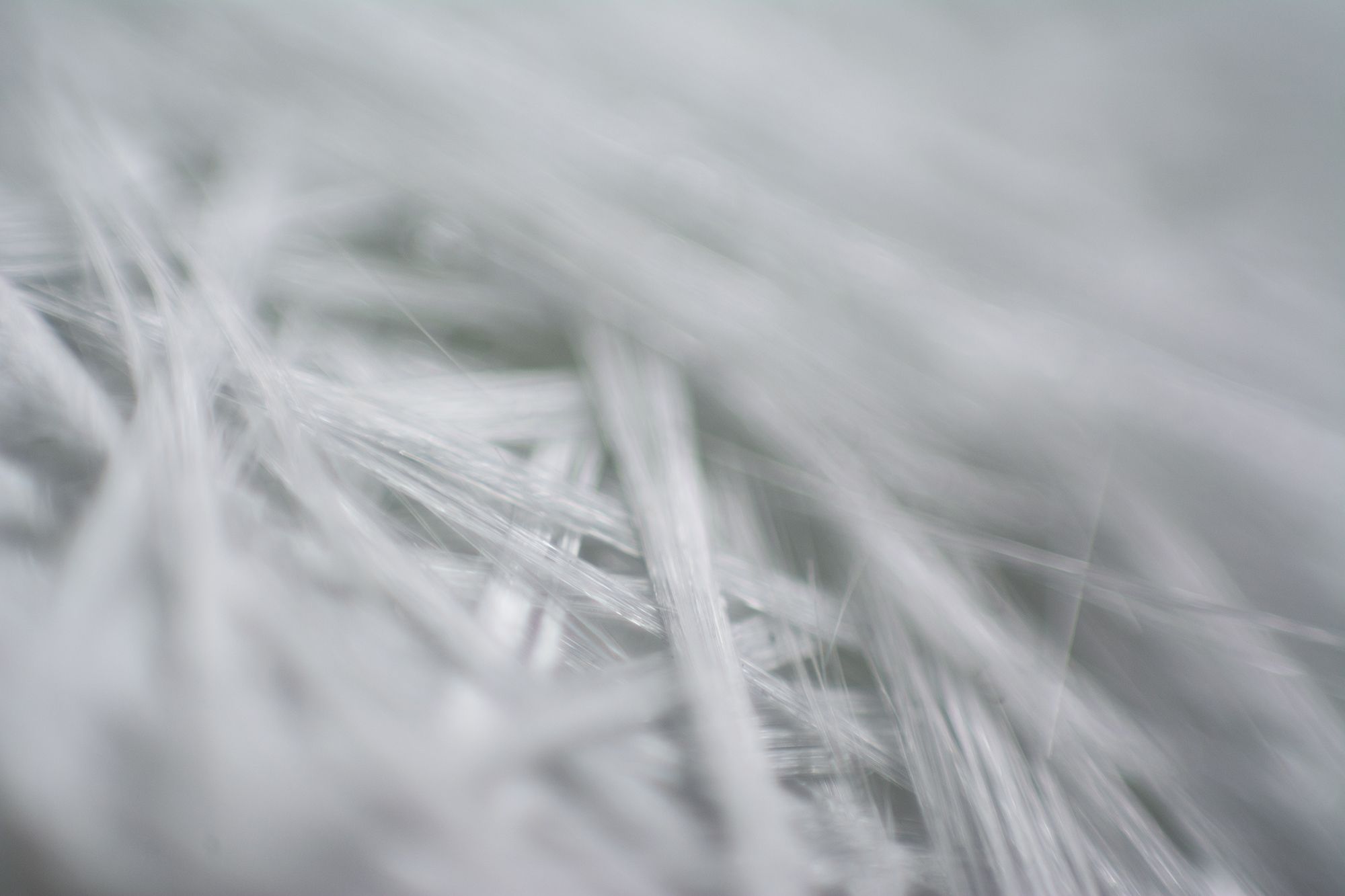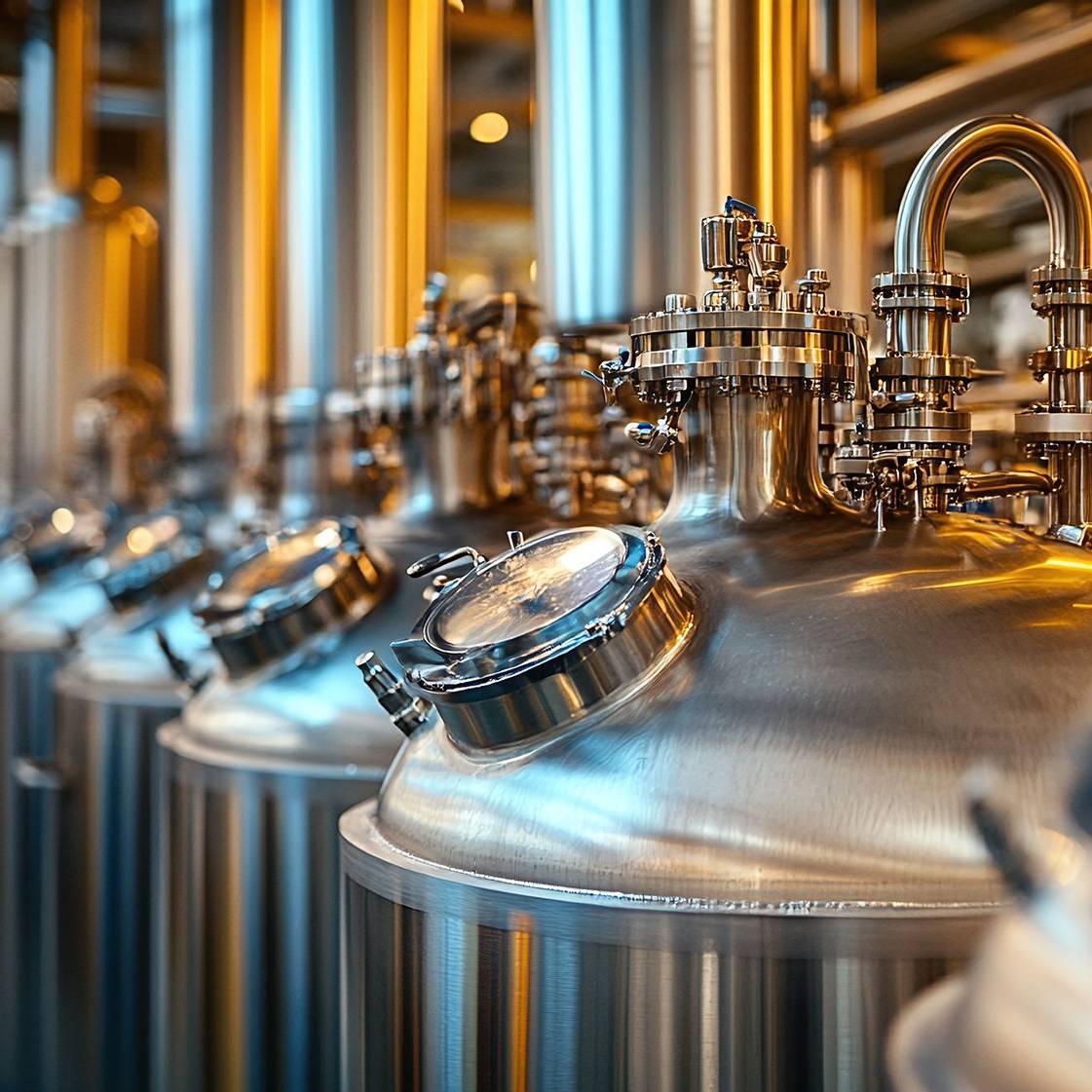TREND THREE:
AI, BIOMANUFACTURING, AND NEW MATERIALS
According to the World Economic Forum, as much as 60 per cent of the physical inputs to the global economy could be derived from biomanufacturing – a fact that could help to make the circular economy a reality.
But while biomanufacturing and next-generation materials both offer important opportunities for boosting circularity, they also face challenges. From the complexity of controlling processes that rely on living systems, to the difficulty of identifying previously unimagined fibres, cutting-edge companies need solutions to streamline research and development and boost quality control. AI can help to provide solutions for both these issues, and innovators are already putting it to good use.
INNOVATION ONE:
AI designs next-gen fibres from scratch
The vast majority of textiles are still made from either petroleum-derived synthetics or resource-intensive natural fibres like cotton, both of which come with significant environmental costs. A new UK startup, Solena Materials, is trying to change that by engineering novel fibres from scratch – with the help of AI and synthetic biology.
The vast majority of textiles are still made from either petroleum-derived synthetics or resource-intensive natural fibres like cotton, both of which come with significant environmental costs. A new UK startup, Solena Materials, is trying to change that by engineering novel fibres from scratch – with the help of AI and synthetic biology.
Born from research at Imperial College London, Solena uses machine learning tools to design protein sequences that are optimised for spinning into textiles. Once the ideal molecular structure is modelled, genetically engineered microbes are tasked with producing these proteins using renewable feedstocks. The result is a new class of biodegradable fibres with tunable properties – from softness to strength to visual finish – depending on the application, whether in fashion, sportswear, or technical garments.

Solena uses machine learning tools to design protein sequences that are optimised for spinning into textiles.”

This approach bypasses the limitations of both natural and synthetic fibres. Where polyester is durable but polluting, and cotton is compostable but water-intensive, these new fibres are designed to be both high-performance and low-impact. The Solena team says it is creating protein sequences that don’t exist in nature in order to optimise properties that conventional textiles simply can’t offer, all while enabling circularity at end of life.
The company launched in 2022 with support from Imperial’s White City ecosystem. It has now raised $6.7 million in a seed funding round led by Sir David Harding, alongside SynBioVen and investor Insempra. The funding will be used to scale up manufacturing at a new, larger facility near Imperial’s campus, and to deepen collaboration with major fashion brands interested in next-generation sustainable materials.
As global brands look to decarbonise their supply chains, demand for more sustainable, high-performance alternatives is rising fast. Solena Materials’ innovation points to a shift in how materials are discovered and made, moving from trial-and-error chemistry to computation-led molecular design.
INNOVATION DATA:
Country: UK
Development stage: Development
Funding stage: Seed
Contact: info@solena-materials.com
TAKEAWAYS:
- Solena uses machine learning tools to design protein sequences that are optimised for spinning into textiles
- The startup claims it is creating protein sequences that don’t exist in nature to optimise properties while enabling circularity at end of life
- The technology reflects a move from trial-and-error chemistry towards computation-led molecular design
INNOVATION TWO:
High-efficiency, AI-powered biomanufacturing
Biomanufacturing is central to building a more sustainable industrial base, from alternative proteins and biochemicals to low-carbon materials and fuels. Yet, high production costs have kept many of these bio-based products from gaining a foothold in competitive markets.
According to McKinsey, the bioeconomy could contribute up to $4 trillion annually in economic impact by 2040, but getting there means addressing entrenched inefficiencies in how products are made. One company, Pow.Bio, has developed a continuous fermentation platform that could provide a long-overdue productivity upgrade – and a possible tipping point for cost-parity across the biomanufacturing space.
Traditional fermentation uses a fed-batch method where microbes grow in cycles that are paused to harvest product, clean, and restart the system. This start-stop approach wastes time, energy, and biomass, making it poorly suited for commodity-scale production. In contrast, Pow-Bio’s new platform keeps production running continuously by feeding in new material as it extracts product in real time. Its bioprocess design tightly controls contamination risk, while its media formulations and dual-bioreactor architecture allow it to maintain microbial stability over longer runs.

Pow-Bio's bioprocess design tightly controls contamination risk, while its media formulations and dual-bioreactor architecture allow it to maintain microbial stability over longer runs."

What sets this system apart is its integration of real-time AI process control. By constantly analysing and adjusting parameters like temperature, pH, and nutrient levels, the platform avoids the performance drifts that have historically plagued continuous fermentation. The result is a process that can deliver two to five times more output per unit of feedstock, while slashing unit production costs by as much as 80 per cent. Unlike previous systems, the technology also works across a wide range of microbial hosts and product types.
Rather than requiring costly, custom-built facilities, the platform is designed to retrofit into existing infrastructure – a potential game-changer for contract development and manufacturing organisations (CDMOs) and foodtech companies alike. With site conversions estimated at just one per cent of greenfield build costs, the system offers a capital-light route to rapid scale-up. While not yet deployed at full industrial scale, the technology has shown success across diverse molecules and applications and has attracted backing from major investors in sustainable food systems.
As the bioeconomy matures, flexible and efficient production methods like Pow.Bio’s could become foundational. By unlocking faster iteration, cheaper manufacturing, and wider applicability, continuous fermentation may help push precision fermentation and other bioproducts out of the lab and onto the global stage.
INNOVATION DATA:
Country: US
Development stage: Launched
Funding stage: Venture (A-B)
Contact: info@pow.bio
TAKEAWAYS:
- Pow.Bio, has developed a continuous fermentation platform that feeds in new material as it extracts product in real time
- Through AI-powered process control, the platform avoids performance drifts that have historically plagued continuous fermentation
- Crucially, the platform is designed to retrofit into existing infrastructure